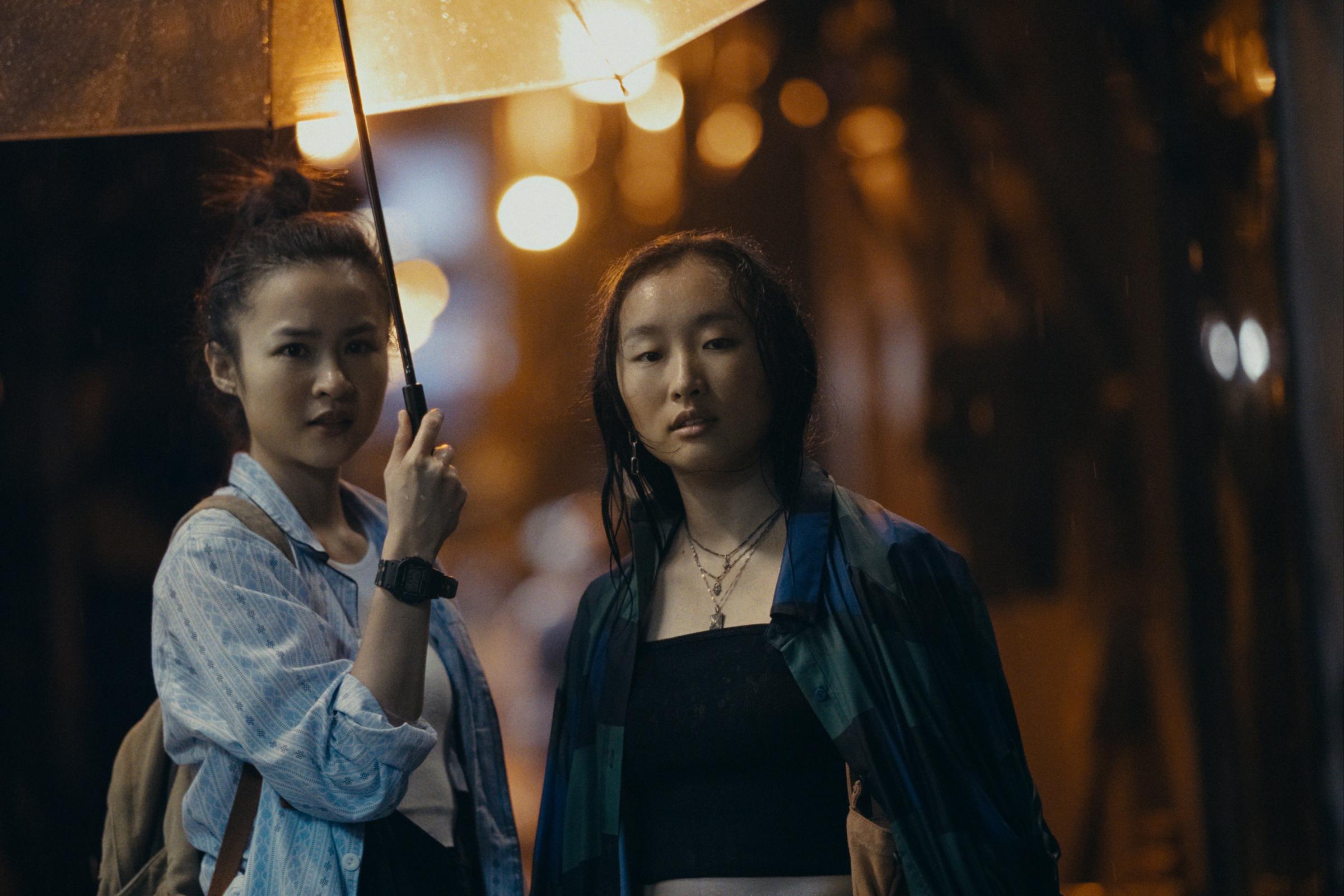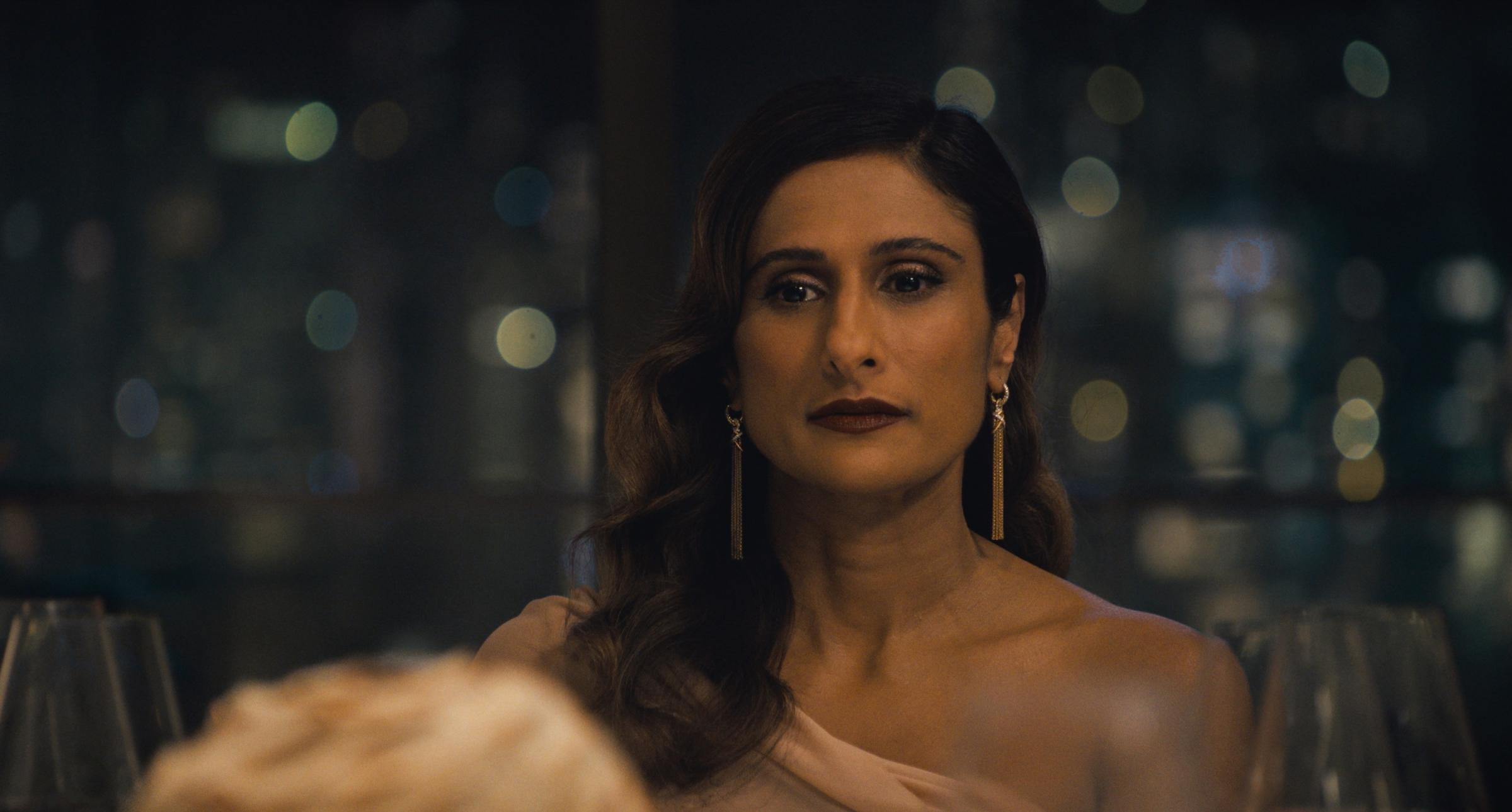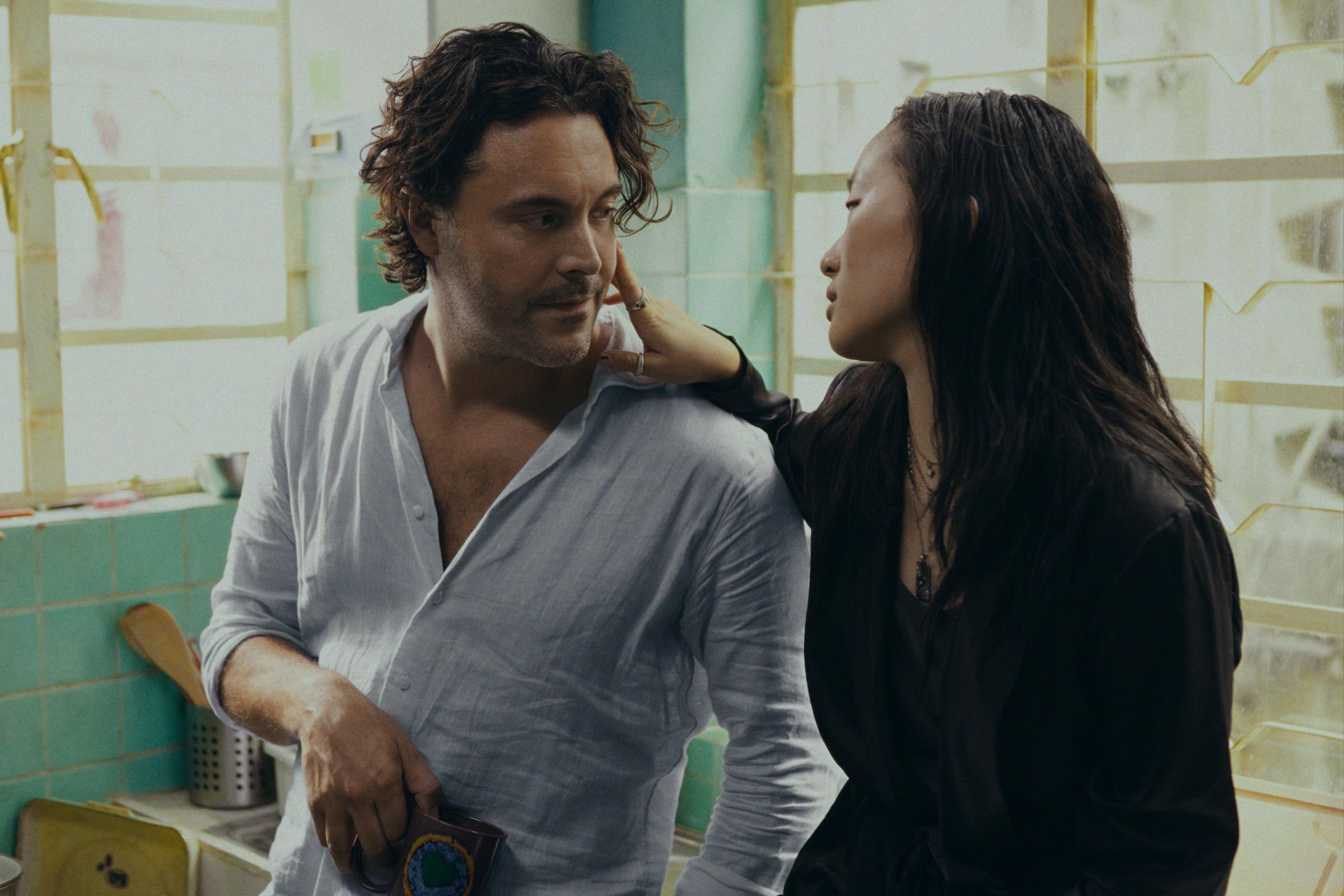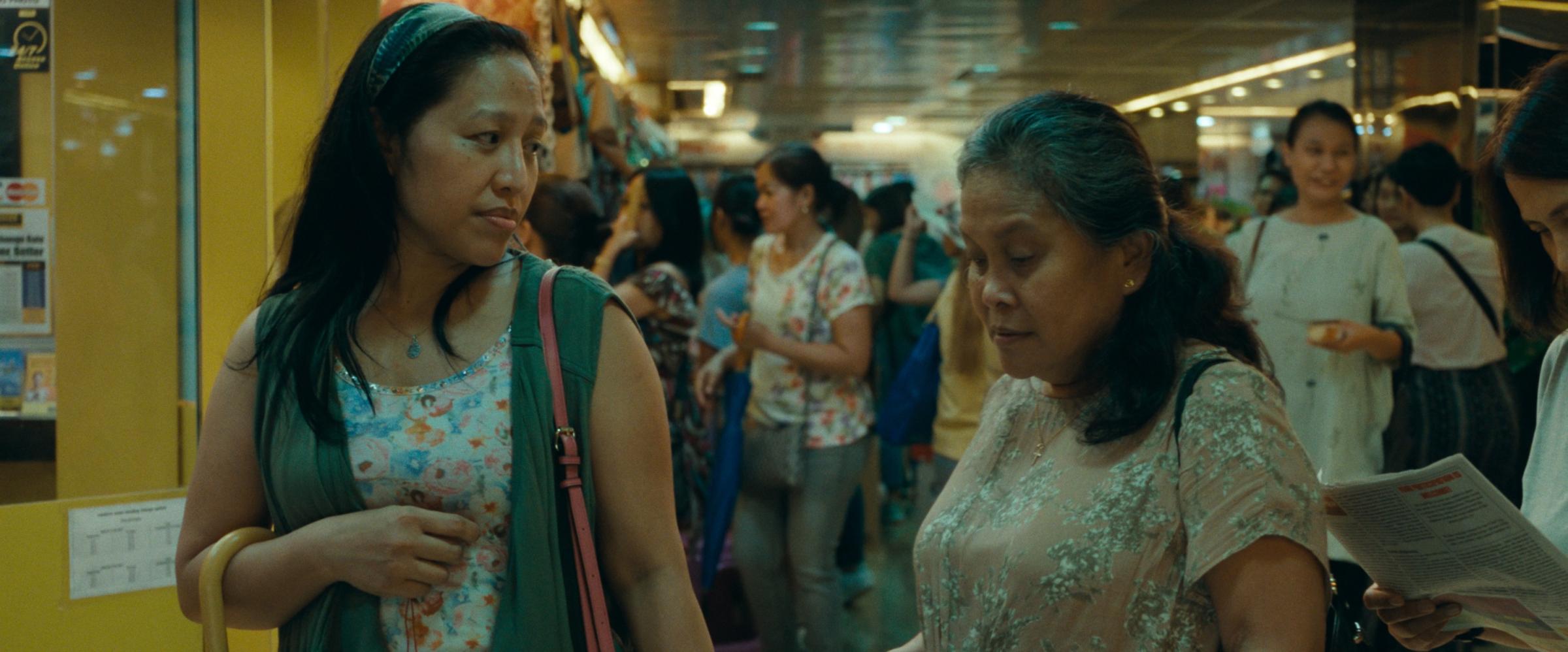Lulu Wang understands families. Her semi-autobiographical 2019 feature The Farewell transports a clan spread out around the world to their homeland of China, where matriarch Nai Nai (Zhao Shu-zhen) is expected to die within weeks of lung cancer. The thing is, everyone knows about this terminal diagnosis except for Nai Nai. Her relatives’ deception is a perhaps misguided act of care. Through this bittersweet slice of life, the filmmaker captures the messy symbiosis between love and lies that defines so many extended-family dynamics.
Wang’s stunning Amazon drama Expats, a six-episode adaptation of Janice Y.K. Lee’s novel The Expatriates that premieres on Jan. 26, expands the frame to encompass three women whose families become intertwined by tragedy. Each is an American living abroad in Hong Kong. And each seems to be approaching an emotional breaking point. What elevates the series beyond a potentially maudlin plot is the nuanced sense of connectedness Wang conjures, not just among central characters plucked from their home countries, but also between the expats and the diverse, teeming, politically precarious urban island they’ve chosen to inhabit.

Nicole Kidman (also an executive producer) is the cast’s requisite boldface name, and her character Margaret Woo, a wealthy mother of three, appears at first to be the show’s true protagonist. A year ago, the youngest of Margaret and her husband Clarke’s (Brian Tee) children, 3-year-old Gus (Connor J. Gillman), disappeared. After months of fruitless searching, she remains obsessed with finding him. But as anger, desperation, and guilt consume her—and disrupt the elegant 50th birthday party she has dutifully planned for Clarke— Margaret is drifting ever farther away, emotionally, from a family that seems horrified by her inability to keep playing the attentive mom. “I love my family, but I have this growing desire to leave them,” she confesses to her neighbor in a luxury building called The Peak, Hilary Starr (Sarayu Blue).
Hilary has problems of her own, though Margaret is too wrapped up in her own agony to acknowledge them. An assertive entrepreneur with an endless supply of impeccably tailored beige jumpsuits, she’s been slowly coming to the conclusion that her marriage to David (Jack Huston), a petulant recovering alcoholic, is over. He keeps ugly secrets—including one that drove a wedge between Hilary and Margaret. Then again, she isn’t telling him that she’s back on birth control even as they’re going through the motions of trying to conceive a baby.

Connected to these privileged women in ways the show’s publicity team would prefer I not reveal is Mercy (Ji-young Yoo), a Korean American 20-something struggling to survive in the gig economy. Her voice opens the series, narrating vignettes of tragic accidents: an exhausted doctor who caused a fatal car crash, a boy whose innocent roughhousing ended with his brother being paralyzed from the neck down. When these stories are told, “the person responsible for the calamity is never mentioned,” Mercy observes. “I wanna know about the people who caused the tragedies. People like me. Are they ever forgiven? Do they ever move on?”
Although it takes a while for Mercy to come to the fore, after a haunting encounter with Margaret as she’s passing trays of hors d’oeuvres at the birthday party, this monologue situates her at the emotional core of the show. At its most elemental level, Expats is a search for the answers to the questions she poses. Mercy believes she is cursed; when she was a child, a fortune teller prophesied that she would die alone. So she does reckless, self-destructive things, like ordering a lover to slap her while they’re having sex or jumping off the deck of a ship and daring herself to swim under it. Wang, who directed every episode and wrote two, contrasts Mercy’s apparent surrender to Hilary’s and Margaret’s continued striving to fix what is broken in their lives.

A more conventional adaptation might have stopped here, with a mere comparison of how different people move on after a catastrophe, or don’t. But Wang’s take on The Expatriates feels uncommonly literary in the sense that a great novel is rich in ideas, observations, and resonances that may not function primarily as plot drivers or neon signs pointing to the moral of the story. One theme is the mix of affection and tension that defines relationships between women who live in close proximity to one another. Hilary and Mercy have fled critical mothers. Margaret and Hilary’s relationship flips like a switch—warm one moment, icy the next. And both employ live-in help, Filipino women living far from their own loved ones, who the rich Americans alternately consider to be “one of the family,” treat as disposable, and resent for being superior versions of themselves.
Yet the Woos’ nanny, Essie (Ruby Ruiz), and the Starrs’ housekeeper, Puri (Amelyn Pardenilla), are more than vehicles for an argument about exploitation. The “helpers” talk amongst themselves about their employers’ lamentable parenting choices and whether it’s prudent to get too close to the person who signs their paychecks. Neither does Wang confine the narrative to foreigners living in a society veering towards cataclysm. Set in 2014, Expats unfolds during the Umbrella Revolution, a series of student-led protests against Chinese interference in Hong Kong’s electoral system. The gorgeous, 97-minute penultimate episode spends time with Puri, Essie, a pair of activists, and their families, artfully slowing the story’s pace, taking time to illustrate how the main characters’ personal problems overlap with those of neighbors native to the island. Now we see how the outsiders’ self-pity amounts to a sort of ugly-American myopia.

The effect of such epiphanies isn’t to condemn any individual character, or to otherwise identify heroes and villains, but to expand our perspective. The deeper the context, the more fully we see the people at the series’ center. Some viewers will surely find all this world-building, which I cherished, tedious. Others might wonder if Kidman is playing traumatized-mom roles on red-eyed autopilot. (I preferred Yoo’s and Blue’s more restrained performances.) There are a few monologues and exchanges that put too fine a point on ideas more elegantly communicated elsewhere.
Despite these excesses, Wang has created a series worth savoring. She is that increasingly rare and precious brand of TV creator, a humanist engaged in detailed portraiture—of three specific women, of their households, of expatriates in Hong Kong, of mothers and daughters in general, and, using their ordeals as a starting point, of the broader social world where they inhabit a few small corners. To understand family is to understand the profound impact that people bound by blood or love or proximity can have on one another. Expats never loses sight of how those same connections aggregate to form the mysterious phenomenon we call society.
More Must-Reads from TIME
- Cybersecurity Experts Are Sounding the Alarm on DOGE
- Meet the 2025 Women of the Year
- The Harsh Truth About Disability Inclusion
- Why Do More Young Adults Have Cancer?
- Colman Domingo Leads With Radical Love
- How to Get Better at Doing Things Alone
- Michelle Zauner Stares Down the Darkness
Contact us at letters@time.com